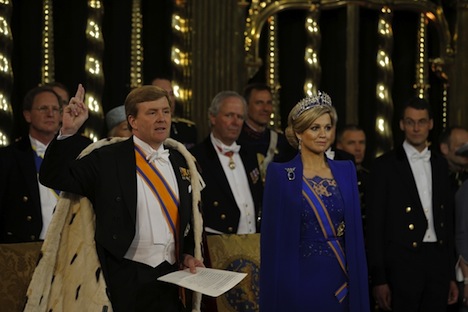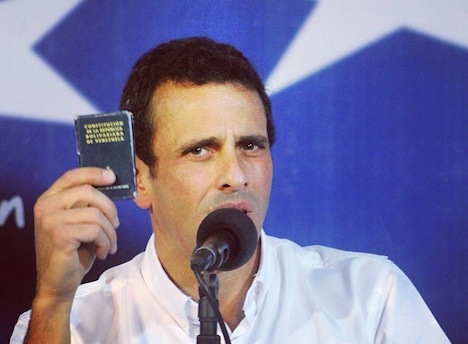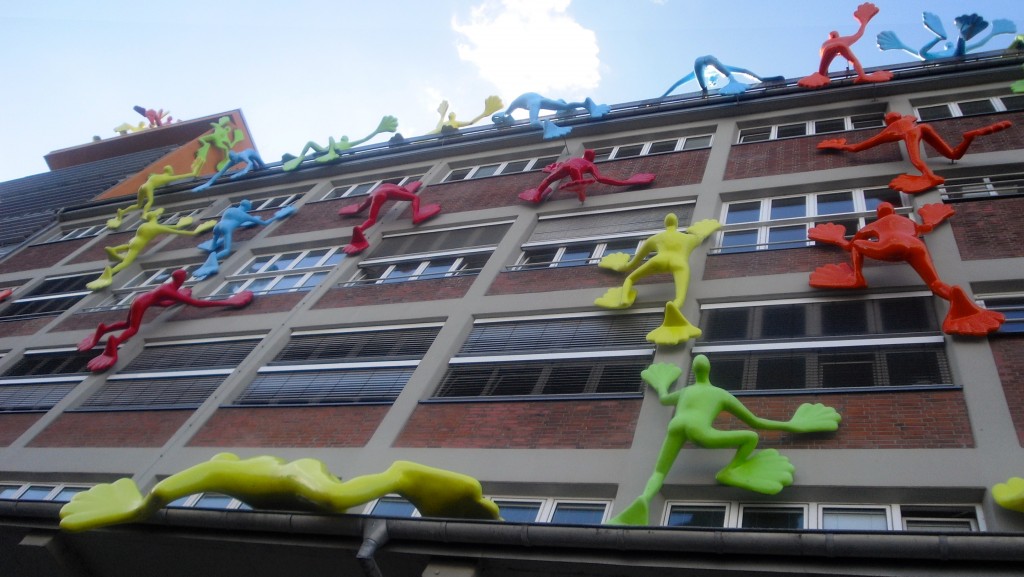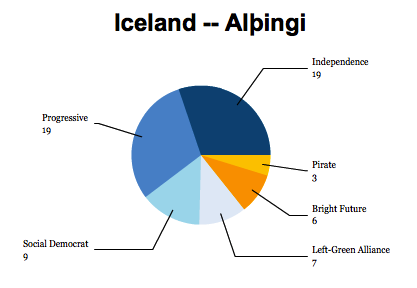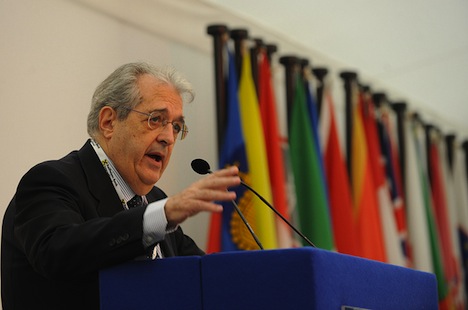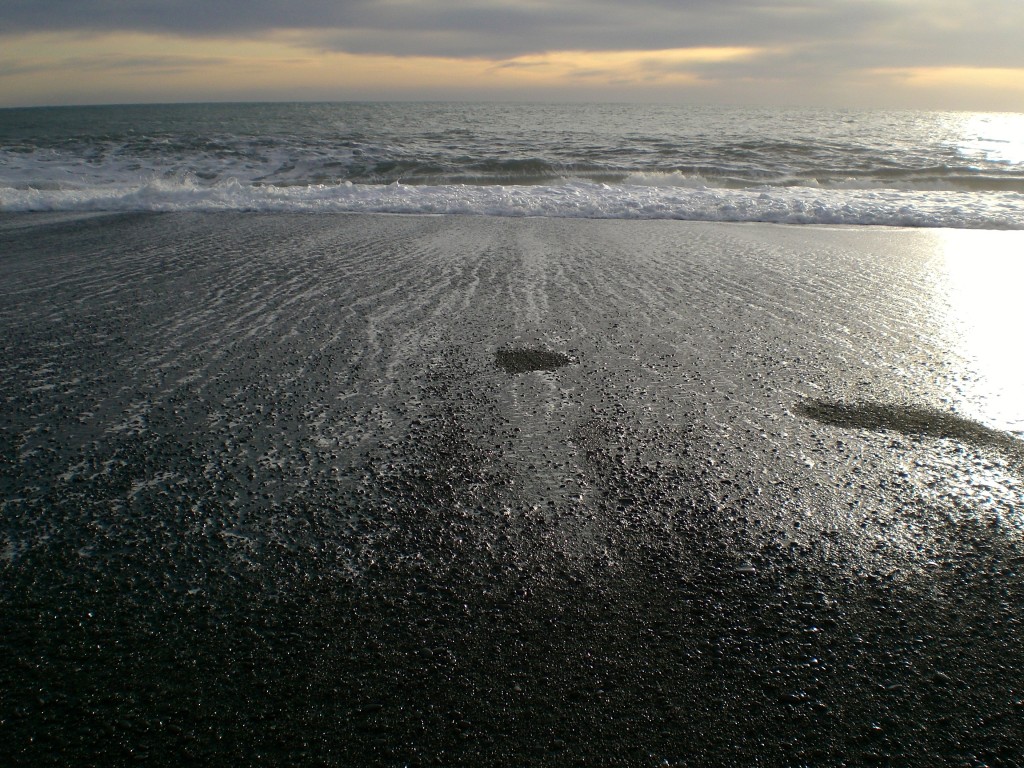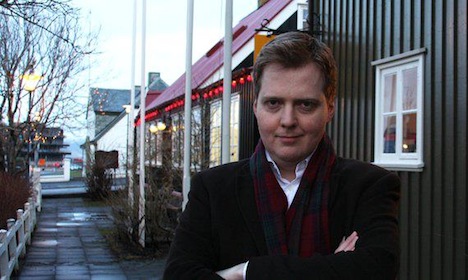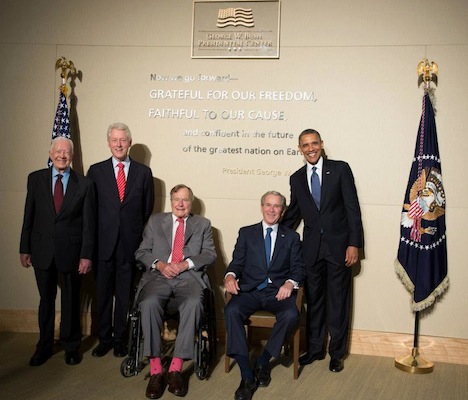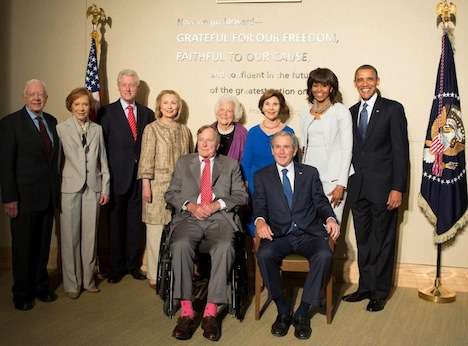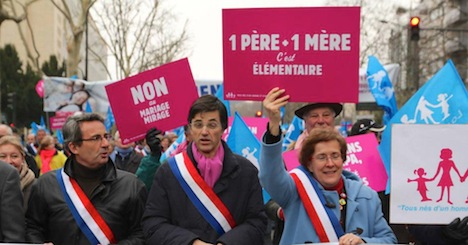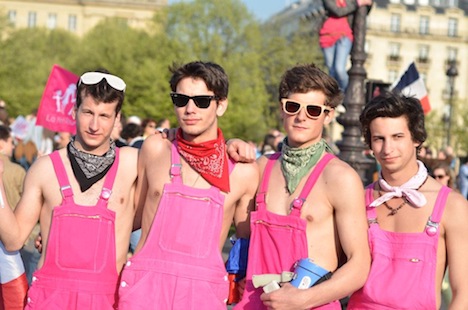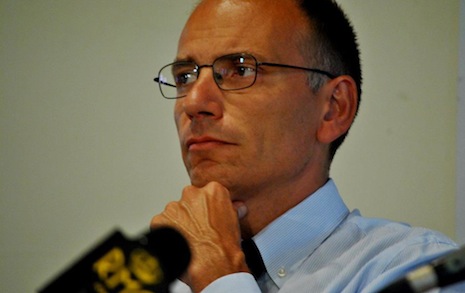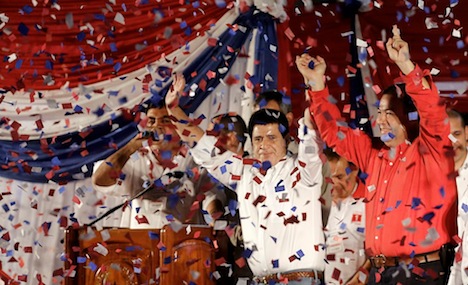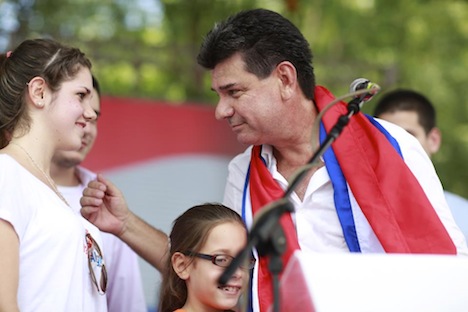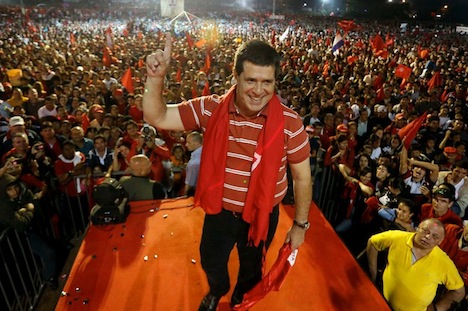In 2008, Malaysia’s opposition surprised the world when it denied the ruling government a two-thirds majority for the first time since Malaysian independence in 1957, thereby depriving it of the ability to amend the country’s constitution with unilateral prerogative.![]()
With Malaysians headed to the polls on Sunday, however, there’s no doubt that the opposition will make further inroads in what promises to be the country’s closest-ever election.
But with a relatively popular prime minister in Najib Razak, robust growth and some signs of a growing crackdown on corruption and liberalization of freedom, it’s not at all clear that Malaysia will mark a full rupture from the ruling party. Even if it does so, the likely prime minister in the event of an opposition win, Anwar Ibrahim, is the former heir apparent to longtime Malaysian leader Mahathir Mohamad, who led the country from 1981 to 2003.
While the campaign has been for over a year quite electric, it’s not clear just how much policy would change if either candidate wins, though the opposition has argued that it would tackle corruption and shred Najib’s flagship New Economic Model, unveiled in 2010 as a plan to double Malaysian per capita income from $7,500 to $15,000 by 2020 in favor of a more egalitarian policy to achieve ever greater levels of economic development.
Political life in post-Mahathir Malaysia has been relatively more exciting than during his 22 years in office, which is most notable for Malaysia’s transformation from a relatively rural backwater into a high-growth economic powerhouse in southeast Asia. Mahathir’s reforms included massive privatization and liberalization in the 1980s that unlocked decades of climbing living standards, despite the southeast Asian crisis of the late 1990s that sent the Malaysian ringgit plunging and notwithstanding affirmative action efforts to the benefit the bumiputera, the ethnic Malay majority, in light of the continued dominance of ethnic Chinese in the Malaysian economy. Mahathir’s rule also featured some autocratic aspects, chiefly a deficit of press freedom, an infamous ‘Internal Security Act’ that allowed for arbitrary detention without trial. He also effected often abrasive relations with the United States.
When Mahathir stepped aside, his successor, Abdullah Ahmad Badawi, actually improved the governing coalition’s standing in the March 2004 elections, winning nearly 198 out of 222 seats in the lower house of Malaysia’s parliament on behalf of the Barisan Nasional (BN, National Front), the multi-ethnic umbrella group dominated by the United Malays National Organisation (UMNO) and, to a lesser degree, the Malaysian Chinese Association (MCA) and the Malaysian Indian Congress (MIC).
But in the March 2008 elections, Abdullah suffered a stinging defeat to the Pakatan Rakyat (PR, People’s Alliance), largely comprised of three parties:
- the People’s Justice Party (PKR), a centrist party formed in 1999 that has campaigned against corruption and in favor of greater equality within the Malaysian economy (and not just UMNO supporters);
- the Democratic Action Party (DAP), formed in the 1960s as a leftist secular opposition party that receives much of its support from ethnic Chinese in urban Malaysia; and
- the Pan-Islamic Malaysian Party (PAS), an Islamic democratic party that predates independence, though it remains one of the world’s most moderate proponents of Islamic democracy, in accordance with the mellow nature of the majority of Malaysia’s Muslims.
Malaysia is a multi-religious, multi-ethnic state — about 60% of its population practices Islam, while 20% practices Buddhism, with smaller minorities practicing Christianity and Hinduism. Ethnic Malays account for about 60% of Malaysia’s population, though ethnic Chinese account for nearly 23% and ethnic Indians account for around 7%. Despite racial and ethnic tensions in the past — Singapore, where ethnic Chinese comprise nearly 75% of the population, withdrew from the Malaysian federation in 1965 over irreconcilable difference over ethnicity.
Anwar’s background in Malaysian public life is long and complicated.
He was widely credited with smart growth policies as Malaysia’s finance minister from 1991 to 1998 under Mahathir, who also elevated Anwar to deputy prime minister. The two fell out over the Malaysian economy during the Asian financial crisis that took root in 1998, and Mahathir rapidly dispatched Anwar to prison on what are widely believed to be politically fabricated charges of corruption. A second conviction for sodomy followed, and though it was subsequently reversed and Anwar left prison in 2004, he was arrested again on sodomy charges in 2008 that were finally dismissed only last year. His wife, Wan Azizah Wan Ismail, led the 2008 campaign in his stead, and as the leader of Malaysia’s opposition forces in 2013, he’s called for a more independent media and judiciary, as well as an end to the cozy economic rewards for members of Malaysia’s longtime ruling elite. Continue reading Can Malaysia’s opposition actually win Sunday’s elections?

